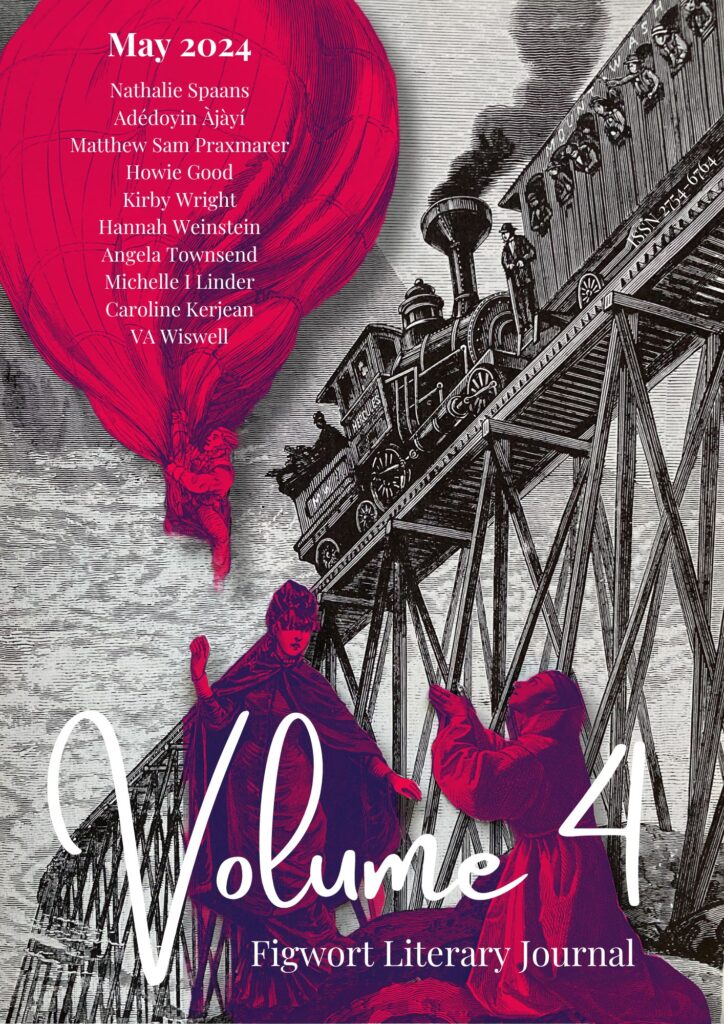The Death of Johnny Bravo
‘The Death of Johnny Bravo’ by Adédoyin Àjàyí
Your tweet was one of the first I saw regarding the ‘End SARS’ wahala. I never did pay much attention to tweets carrying hashtags. They were always so stupid to me. You could see a tweet with #KylianMbappe, #bigass, #SterlingBank, #fireinLagos, and #NancyIsime. You’d click on ‘#KylianMbappe’, hoping for a sizzling video of him Harry Pottering with a football, only to have all the zest sucked out of you with a tweet you’d forget as soon as you saw it.
Dami pokes me in the back. ‘Have you seen the tweets trending online?’
I snort. She knows I don’t like Twitter that much. I keep playing Call of Duty on my laptop.
‘Hope it’s not another challenge? What was the last one trending some time ago? Shadow something.’
She corrects me. ‘Silhouette challenge.’
I shoot up a grove full of soldiers before I answer. ‘What’s this one about?’
‘Youths protesting against police brutality.’ She shows me her phone, and I have to pause my game.
I know the accuracy of her words. Dami doesn’t lie. Whatever she tells you, you can take it to the bank. There has to be a reason why she’s telling me. I’m still doubtful though. No be Naija we dey?
‘So it’s another yeye protest that’ll soon die out. Abeg jare.’ I dismiss her words.
She raises one eyebrow in that way she usually does when she’s slightly annoyed and she shakes her head at my disbelief. She taps her phone in a fast motion, her black nail polish glinting with the backlight of her screen. Though it’s simple, her Rihanna T-shirt looks great on her. Everything usually does.
She holds her phone out to me again, eyebrow still raised. I huff, pause my game again and snatch it off her. I’m dumbfounded by what I see.
She sneers at me.
‘Do you believe me now?’
*
Your mother sold some of the tastiest akara I’d ever eaten. Sometimes I found myself comparing the akara I bought on campus with the one your mother sold back home in Ikorodu. It was carefully fried, unlike that of the cash-hungry campus sellers. I think your mother’s pleasant disposition made her akara sweeter. Everybody near the shop along Isawo Road knew her. It was a beehive at night. She handed out akara spiced with her smiles, offering reprieve to people wearied by their daily activities. The scent of it teased nostrils and aroused mouths in our neighbourhood.
Your mother didn’t always sell akara. She began only after your father died when one of his operations went badly. He was hit by a lorry while running from the police and the olode. When your father wasn’t stealing, he was driving a bus for a transport company whose name I can’t remember, which specialised in long-distance travel. His passengers were varied—fresh graduates heading halfway round the country to NYSC camp, families going for an owanbe, businessmen on company assignments, lovers on weekend rendezvous.
The chatter of his death never went away. It swirled about like filthy water in a blocked sink, miring you and your mother until it threatened to drown you both. Your mother, a smart woman, realised that filling your bellies was a more important concern than stilling tattling tongues and loose lips. She’d taken to selling clothes during the day and frying akara at night. She moved on quicker than you. The choice was harder for you. His assault on you continued even after his death. The two long, horizontal scars in front of your left ear ensured you wouldn’t forget him.
Our little neighbourhood never saw you more than the son of a thief. In their eyes, they saw it as a ceiling you would never rise above. Being teenage boys in that delicate phase where we shrouded ourselves with an inflated sense of self, that phase where our egos dominated our consciousness, we were prickly. You got into fights. But you seemed to forget about them quickly. You had this light that made it easy to shake off your hurts. It made the tiny scars on your face look like a sprinkling of black confetti.
We went from eating akara, licking Trebor at break time and playing on jangolova to whyning girls, balancing chemical equations and playing PES, which you called the second-rate version of FIFA. You had the swag the girls all liked. You were the one who made them laugh when we all walked home from school with the sun beating down on us. You also liked to play ball. You were one nifty dancer with the ball. Nobody liked marking you because you would humiliate them. You sidestepped markers like a glorious suave ballerina, Ronaldoed your way past us with lightning step-overs and lobbed the goalkeeper when he dared come off his line for the ball and ran off, jubilating wildly, your dreadlocks falling into your eyes. The only way to get the ball off you was by kicking you. The girls and the ball were your respite from your troubled childhood. You were an overgrown Johnny Bravo, who didn’t get beaten up like women. Rather, you moved from one adventure to yet another with little memory of what hurt you.
The tiny black spots on your face reminded me of my younger brother’s battle with chicken pox. You never told me when I asked you what caused them. But I knew your father was mean as fuck to both you and your mum. My mother took a liking to yours right away; and under the guise of attending to their needs and running errands for them, flecks of your troubled childhood dropped in my mind. At first I wondered why you never really grieved for him when he died.Only later, much later, did I understand that few sons grieved for a father who flicked lit cigarettes into their faces; and even fewer sons bewailed the exit of a man who took a knife to their faces and left them looking like a young Al Capone. When your father wasn’t driving passengers from Lagos to Kano, he was smoking one too many cigarettes in his house and tossing them at his wife and son while he complained about your mother’s cooking. Sometimes when his Action Bitters got the better of him, he cursed fate for what he saw as the sorry state of his life—saddled with a family he had to provide for. Our houses were close, and every morning when your mother turned up at my house just before we went to school together, her lips the size of sausages, I knew you would be sleeping over at my house at night to spare you from the same fate. Your father’s world had collapsed around him, and his frustrations were rubble that you and your mother bore the weight of.
Though I never told you, I wondered how you felt living with a character that bore failed fantasies inside him. That was why my mother tried to make our house a comfortable place for you. You liked coming over too. However, my mother’s company couldn’t keep you in my house for long. Not when the girls were there. It was easy to see them jaywalking down the streets, revelling in their newfound femininity, their bodies stretching the seams of their tight skirts. You told me some crazy gist about them, the kind that teenage boys liked to tell over and over till the truth became inflated with braggadocio. Just like when you told me that Folake’s nipples tasted like baby powder. I wonder how long your head spent buried in her bra for you to know that.
‘Like baby powder and sweat,’ you said, laughing. You were just the worst kind of werey.
I was incredulous. ‘Why would she use baby powder at her age?’
‘To smell fine now, why else?’ You laughed some more. ‘But Mercy doesn’t use it.’ You winked. I didn’t ask you any more questions. I had no reason to know what Mercy tasted like, or anyone else for that matter. My imagination filled the gaps for me.
You met Dami when we were in the university. She was slim, yet her figure held the promise of curves borne from a soft life and motherhood. With her, you stopped bouncing from girl to girl like a rambunctious kid who’d just discovered a trampoline. She saw a part of you that no other girl saw—that haunted part of you that fought with the ghosts of your abusive childhood, and the perception that you struggled against. She saw you as a man who tried to find happiness in whatever way he could. Till this day, I don’t know what cut you more—your disfigured face or her death.
When the ‘End SARS’ protest began, I was sure to find you in the thick of it. You were there tweeting, retweeting and red-hearting any post that drummed support for it. You took to it with a vengeance. You were the devil in hell; the protest, your sharpened pitchfork which you rammed home mercilessly, and the bedlam on the streets were your raging fires. When Twitter’s banks could no longer stem the outpour, the protest spilled into the streets with striding youths carrying placards. You were right there with them. Your dreadlocks had made you the target of many stereotypes.
Once when we were home on break, two policemen had accosted us on our way back from Ketu. Their rifles looked like relics from the Nigerian Civil War we never witnessed but had only read about. Yet we weren’t willing to test the possibility they could leave bloody holes in us.
Although they assaulted us once, it could garner enough pity for two lifetimes.
They forced us to lie face down near the pavement at the BRT terminal in Majidun, where errant Lagosians would relieve themselves. The stench burrowed into my nostrils, so deep; I couldn’t eat anything else that day.
*
When Dami showed me your thread of the incident on Twitter, I was floored. I didn’t play Call of Duty for the rest of that day. At the time, it only had less than a hundred likes and seventy-nine retweets. Two days later, it had over a thousand likes and more than two thousand retweets.
Unfortunately, ‘End SARS’ failed. It left you with more pain by taking Dami away from you forever. The protest gave you a chance to even the scorecard in your slugfest with life, since you had been on the receiving end your whole life. You could neither fight your father’s assault on your body and your mind nor his ghost that left whispers in our neighbourhood. You couldn’t fight people’s views of you that chained you. You were a victim of your circumstances, an unfair prisoner of war captured by distorted perceptions. Your bubble burst, Johnny Bravo died, and I saw how the pain had ruined your insides. It taught me that the mind could process hurts, even if not fully mature enough to comprehend it. Sadly for you, the protest ended with the one person who saw you for who you were taken from you.
No one knew how it happened or what actually happened. One minute you both were carrying placards and chanting in the streets, sneaking smiles at one another when you could. The next minute, gunshots rang out. Feet took off in countless directions. You saw Dami lying on the ground, sputtering and choking on her blood. You held her till her eyes stared into space, seeing nothing. Her name fell under a banner of fallen souls, lost stars for which there would be no justice.
Your facade wore off. The bubble of nonchalance and escapism you so tenderly wrapped yourself in had burst. Your eyes lost their lustre, and the black spots seemed to stand out more on your face. There would be no girls and ball to offer you respite this time. The only solace for you is a memory. But it does little to deaden the scars you carry.
Adédoyin Àjàyí is a young Nigerian writer. He writes from Lagos, the city that never sleeps. Nature is the biggest influence on his writing. His work has appeared in Brittle Paper, Kalahari Review, Afrocritik, Livina Press, Nantygreens, Literary Yard, Fiction Niche, Literally Stories, Maudlin House, African Writer, Ngiga Review, Spillwords Press, and Arts Lounge. He’s addicted to cakes, books, and suits. He tweets @AjayiAdedoyin14.



